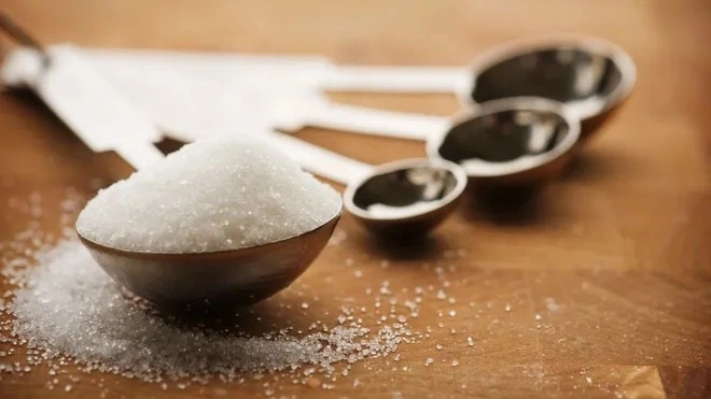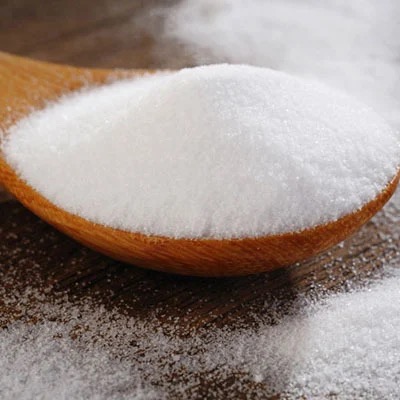







Content Menu
● Why is Sucralose Popular in Drinks?
● Types of Drinks That Contain Sucralose
>> 1. Diet Sodas and Soft Drinks
>> 2. Flavored Water and Sparkling Water
>> 3. Sports and Energy Drinks
>> 4. Coffee and Tea Beverages
>> 5. Juice and Fruit-Flavored Drinks
>> 6. Dairy-Based Drinks and Yogurts
>> 7. Meal Replacement and Nutritional Drinks
>> 8. Alcoholic Mixed Drinks and RTD Cocktails
● Sucralose in Beverage Manufacturing
● Health and Safety of Sucralose in Drinks
● How to Identify Drinks Containing Sucralose
● Emerging Trends: Sucralose in Natural and Functional Drinks
● Consumer Considerations and Myths
● FAQ About Sucralose and Drinks
>> 1. What drinks commonly contain sucralose?
>> 2. Is sucralose safe for diabetics?
>> 3. Does sucralose contain any calories?
>> 4. Can sucralose withstand heat in beverages?
>> 5. How can I tell if a drink contains sucralose?
Sucralose is a widely used artificial sweetener that has become a popular ingredient in many beverages worldwide. Known under the brand name Splenda, sucralose is derived from sugar but is approximately 600 times sweeter while contributing almost no calories. Its unique properties make it an excellent choice for those looking for a sweet taste without the added calories or impact on blood sugar levels.
In this article, we will explore various drinks that contain sucralose, the benefits and safety aspects of this sweetener, and why it has become a staple in the beverage industry. Whether you are a manufacturer, consumer, or simply curious about healthy sweetening options, this comprehensive guide will provide valuable insights.

Sucralose is an artificial sweetener created by chemically modifying sugar molecules, selectively replacing parts of the sugar with chlorine atoms. This modification results in a compound that tastes like sugar but is not metabolized by the body, hence providing sweetness without calories.
The sweetness intensity of sucralose is roughly 600 times that of regular sugar (sucrose), allowing very small quantities to achieve the desired sweetness. Additionally, sucralose shows excellent heat and acid stability, which makes it ideal for use in various drinks — from sodas to flavored waters and energy drinks.
Unlike other artificial sweeteners such as aspartame, sucralose can withstand high temperatures without breaking down or losing its sweetness. This heat stability is crucial when drinks undergo pasteurization or cooking processes during manufacture.
Sucralose has become a preferred sweetening agent in the beverage industry for several important reasons:
- Zero Calories: Sucralose provides the sensation of sweetness without adding any caloric value, making it ideal for diet and low-calorie beverages.
- Blood Sugar Friendly: It does not affect blood glucose or insulin levels, making it an excellent choice for diabetics and those with metabolic concerns.
- Heat Stability: Sucralose retains its sweetness after heat exposure, allowing it to be used in hot and shelf-stable drinks.
- No Aftertaste: It has a clean, sugar-like taste without the bitter or metallic aftertaste associated with some artificial sweeteners.
- Versatility: Sucralose easily blends with other sweeteners and flavor enhancers, giving manufacturers flexibility in product formulation.
- Long Shelf Life: Its chemical stability helps maintain the quality and sweetness of beverages over extended periods.
Sucralose is used in a wide range of beverage categories, often in combination with other sweeteners or alone to meet consumer demands for better taste and low caloric intake. Below are the main types of drinks that commonly contain sucralose.
Many diet sodas and sugar-free soft drinks contain sucralose as the primary sweetener or in combination with acesulfame potassium or aspartame. These beverages offer consumers a familiar sweet taste minus the sugar calories. Brands often advertise "no sugar, no calories" benefits while delivering a flavor profile that approximates regular sodas.
Flavored waters and sparkling waters frequently use sucralose to provide a subtle sweetness without raising the calorie content. Sucralose's ability to remain stable in acidic, carbonated environments makes it especially suitable for these drinks, helping to balance tartness and enhance flavor without sugar.
In sports and energy drinks, sucralose plays a critical role in masking the bitterness from caffeine, electrolytes, and other functional ingredients. These beverages often target athletes and active individuals who want refreshing, flavorful hydration but with fewer calories.
Ready-to-drink (RTD) coffee and tea beverages include sucralose to add sweetness without extra sugar. This is particularly significant for chilled, shelf-stable, or heat-processed bottled coffees and teas, where the sweetener must remain effective throughout the product's shelf life.
Some juice and fruit drink products have low-sugar or reduced-sugar variants that rely on sucralose to maintain sweetness while enabling calorie reduction. This appeals to health-conscious customers who want fruit flavor without excessive sugar intake.
Low-calorie or reduced-sugar dairy beverages, such as flavored milk, drinkable yogurts, and kefirs, utilize sucralose to preserve a sweet taste while lowering sugars and calories. The compatibility of sucralose with various dairy matrices makes it useful in these products.
Meal replacement shakes and nutritional beverages designed for weight management or medical nutrition often include sucralose to improve palatability without boosting calorie counts.
Some ready-to-drink alcoholic beverages and flavored malt drinks use sucralose as a sweetener to reduce calorie content while maintaining desirable taste profiles, appealing to consumers watching their calorie intake.

From a manufacturing perspective, sucralose offers numerous advantages that streamline product development and quality control:
- Solubility: Sucralose dissolves readily in water and several organic solvents, facilitating easy blending with flavors and other ingredients.
- Cost Efficiency: Its intense sweetness means only small amounts are needed, reducing raw material costs.
- Stability: Resistant to degradation during pasteurization, sterilization, and long shelf times.
- Taste Profile: Minimal off-flavors allow for clean sweetness that complements a wide range of flavors.
- Regulatory Compliance: Sucralose is globally approved and regulated, with clear guidelines on usage limits to ensure safety and efficacy.
Manufacturers typically follow guidelines specifying maximum use levels to balance sweetness, product stability, and safety. The permitted concentration can vary but generally reaches up to approximately 300 mg/L in beverages.
Sucralose's safety has been rigorously evaluated by major health authorities worldwide. It is Generally Recognized As Safe (GRAS) by the U.S. Food and Drug Administration (FDA) and approved by the European Food Safety Authority (EFSA), the World Health Organization (WHO), and many others.
The Acceptable Daily Intake (ADI) for sucralose is:
- 5 mg per kilogram of body weight per day as established by the FDA and Joint FAO/WHO Expert Committee on Food Additives.
- EFSA allows up to 15 mg/kg per day, reflecting extensive safety margin studies.
These levels far exceed typical daily consumption by consumers even when regularly consuming sucralose-containing drinks.
- Metabolism: Sucralose is not metabolized by the body for energy and is mostly excreted unchanged.
- Impact on Blood Sugar: It does not raise blood glucose or insulin levels, making it safe for diabetics.
- No Tooth Decay: Unlike sugar, it does not feed oral bacteria that cause cavities.
- No Cancer Risk: Numerous long-term studies have found no link between sucralose and cancer or other serious health concerns.
- Digestive Tolerance: Generally well tolerated, although excessive intake could cause mild digestive discomfort in sensitive individuals.
Overall, sucralose remains one of the safest and most widely accepted artificial sweeteners used in the beverage industry.
Consumers can easily identify sucralose-containing drinks by looking at the ingredients label. It will be listed as:
- "Sucralose"
- Food additive code "E955" (common in Europe and some other regions)
- Sometimes under brand names like "Splenda," which is a trademarked sucralose-based sweetener product
Checking labels is essential for those managing sugar intake, calories, or artificial sweetener consumption.
The beverage industry constantly evolves with consumer preferences shifting towards natural and functional products. Although sucralose is an artificial sweetener, its use continues to grow in products that feature:
- Plant-Based Beverages: Almond milk, oat milk, and other dairy alternatives increasingly use sucralose to improve sweetness without sugars.
- Functional Waters: Enhanced waters containing vitamins, minerals, or botanicals often incorporate sucralose for light sweetness.
- Probiotic Drinks: Some probiotic and gut-health beverages utilize sucralose to balance tart or bitter notes caused by fermentation.
- CBD-Infused Beverages: Newer functional drinks infused with cannabidiol (CBD) and other botanicals use sucralose to improve flavor appeal without adding calories.
These trends underscore sucralose's versatility and its role in health-conscious, innovative beverage formulations.
Despite scientific consensus on its safety, some consumers remain skeptical about sucralose and artificial sweeteners in general. Common concerns include perceived unnaturalness, potential side effects, and misconceptions about metabolic impact.
It's important to base decisions on credible scientific data showing:
- Sucralose is safe for general and diabetic populations.
- It does not cause weight gain when consumed as part of a calorie-controlled diet.
- It does not affect gut health negatively at typical consumption levels.
- It helps reduce sugar consumption and associated health risks when used in moderation.
Manufacturers and health educators play a key role in providing clear, transparent information to consumers to build trust and understanding.
Sucralose is an integral sweetening ingredient in a vast array of beverages worldwide, ranging from diet sodas, flavored and sparkling waters, sports and energy drinks, to coffee, tea, juice drinks, dairy-based beverages, and new functional drinks. Its intense sweetness, zero-calorie profile, excellent safety record, heat stability, and clean taste make it a preferred choice for manufacturers aiming to meet the modern consumer's demand for healthier, lower-calorie beverage options.
By understanding which drinks commonly contain sucralose, along with its benefits and safety, consumers can make informed choices aligned with their dietary goals. Looking ahead, the beverage industry will continue leveraging sucralose in combination with other natural and synthetic sweeteners to deliver enjoyable, health-conscious products.

Many diet sodas, flavored waters, sports and energy drinks, ready-to-drink coffees and teas, sugar-reduced juice drinks, dairy-based beverages, and some alcoholic ready-mixed drinks commonly include sucralose as a sweetener.
Yes, sucralose does not raise blood glucose or insulin levels, making it safe for people with diabetes to consume.
Sucralose contains almost no calories because it is not metabolized by the body and is used in very small amounts due to its intense sweetness.
Yes, sucralose is heat-stable and retains its sweetness during processing methods involving heat, such as pasteurization, and also throughout storage.
Check the ingredient label for "sucralose," the additive code "E955," or branded sweetener names like "Splenda." These indicate the presence of sucralose in the beverage.
[1] https://dpointernational.com/question/what-is-the-level-of-sucralose-is-typically-used-in-flavoured-water/
[2] http://money.finance.sina.com.cn/corp/view/vCB_AllBulletinDetail.php?stockid=301206&id=7370608
[3] https://en.wikipedia.org/wiki/Sucralose
[4] https://money.finance.sina.com.cn/corp/view/vCB_AllBulletinDetail.php?stockid=002286&id=10970144
[5] https://pmc.ncbi.nlm.nih.gov/articles/PMC3856475/
[6] https://www1.hkexnews.hk/listedco/listconews/sehk/2025/0530/2025053000074_c.pdf
[7] https://www.webmd.com/diet/what-to-know-about-sucralose
[8] http://pdf.dfcfw.com/pdf/H2_AN202201131540218030_1.pdf
[9] https://www.fda.gov/food/food-additives-petitions/aspartame-and-other-sweeteners-food
[10] https://pdf.dfcfw.com/pdf/H2_AN202104081482179540_1.pdf
